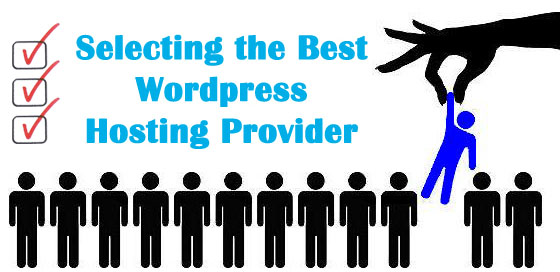
At present, any person with minimum computer knowledge can build his / her own web page for several purposes such as promoting a business, sharing personal opinions sharing photos, etc…
To create such web pages, there are various web applications available on the Internet, such as WordPress, Joomla, Drupal, and Blogger. Now, imagine a user who decides to build his own website, blog, or photo gallery and decides to hire a web hosting service provider.
Well, to install WordPress CMS, the first point you need to bear in mind is the selection of a web hosting provider that can suffice your requirements. No doubt, this is one of the essential points that need to be considered, as a bad choice can affect the quality of your service, the security of your website or blog, etc…
Since there are so many web hosting companies in the market that offer these services, making a proper selection is a very confusing task for beginners. To make it easier, I have listed some of the web hosting aspects; and selection criteria that should be considered when selecting a suitable WordPress hosting provider.
Selection Criteria to Choose a Quality WordPress Hosting Provider
Provider’s Reputation – Certainly, this parameter is individual, however, is very important to look for providers that offer guarantees and whose reputation is really good. To know the reputation of a hosting provider, you may consult with other people on forums, visit review sites, or ask other companies that are hosting their websites with the particular hosting provider. It can be a good way to know their reputation for reliability.
Type of Hosting (Service Architecture) – The majority of providers offer two types of hosting platforms: Windows & Linux. For compatibility reasons, WordPress, Joomla, and Drupal perform much better on the Linux platform. Although the Windows platform may also be a good option for hosting such sites, however issues related to updates, functionalities, etc… may arise in the future. Generally, in order to install Joomla, the service provider needs to have components like PHP, MySQL, and Apache.
In short, for these types of content management systems, it is recommended to opt for a Linux-based hosting solution. You may opt for a free web hosting provider as an alternative if your purpose is just “Testing”. However, free hosting solutions are not recommended as most of the time it doesn’t cover essentials like “Uptime Guarantee” and “Backups”.
Disk Space and Bandwidth – This is another important aspect of a web hosting service. You must select a hosting provider that suffices your needs in terms of storage space and bandwidth. You should put special attention to those who offer unlimited disk space and bandwidth.
Remember that, terms like “unlimited” doesn’t exist. If you read the web hosting provider’s fine print of “Terms of Service”, you will get to know that in actuality it is far different than unlimited.
Technical Support – You must know what kind of support the hosting company provides if any technical issues due to server crashes occur. Also, check out what is their response time to the issue as well as what kind of tone the support persons use when responding.
Technical Elements – Usually most web hosting providers offer the same or similar tools to facilitate the user for website management. See, if they offer cPanel, phpMyAdmin, etc… as these can greatly help in WordPress installation as well as managing databases.
Security – Ask the web hosting provider, what policies are applied to protect your data from potential security issues as well as backup generation frequency.
Other aspects to consider would be the price, discounts and some sort of package which can benefit you.
Based on the above selection criteria you can choose a suitable WordPress hosting provider to build a website or blog.
Logically, the high level of breaches and enormous use of WordPress has made it a potential target for cybercriminals. Due to this reason, I have decided to provide some effective tips on WordPress security. Don’t forget to check out my next blog post “How to Improve Your WordPress Security”. It will cover a set of security recommendations and steps to increase security of your WordPress-based website/blog.